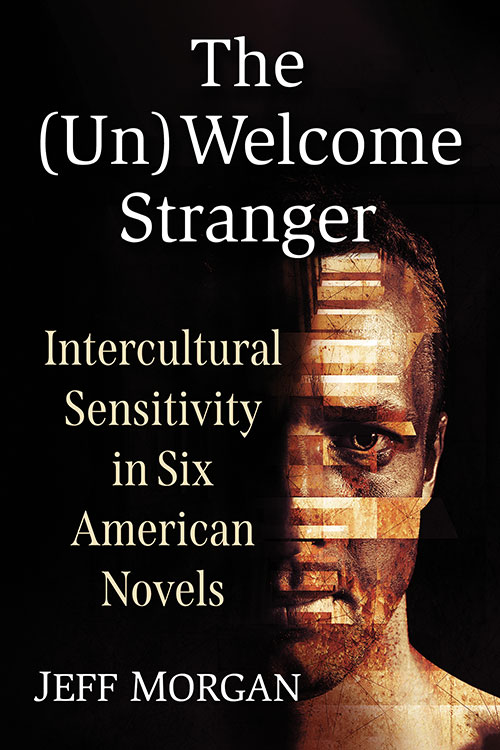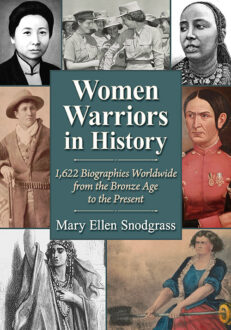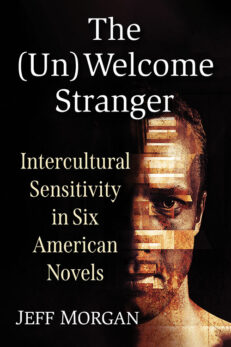The (Un)Welcome Stranger
Intercultural Sensitivity in Six American Novels
Original price was: $45.00.$22.99Current price is: $22.99.
In stock
About the Book
This book explores the possibilities of intercultural training through literature, especially as related to collegiate study abroad programs. It presents a behavioral analysis of American literary characters through the lens of Milton Bennett’s Developmental Model of Intercultural Sensitivity, which identifies sensitivity to cultural differences within a six-stage developmental continuum.
The literary characters studied in this work all undergo an early separation which forces them to experience and relate to different worldviews. Moby Dick’s Ishmael leaves land for an epic whaling adventure. Hester is forced to live on the outskirts of town in The Scarlet Letter. The nameless protagonist of The Country of the Pointed Firs leaves the city for the country. The title character of The American emigrates to Europe. Ellison’s narrator in Invisible Man experiences a series of separations, starting at his college acceptance. For Whom the Bell Tolls’ Robert Jordan leaves his Montana teaching job to fight in the Spanish Civil War. The book tracks each character’s progress along Bennett’s continuum, demonstrating how people—both real and fictional—can manifest intercultural sensitivity through exposure to different people, places, and experiences. The book concludes with a firsthand account of how the author’s own students advanced along Bennett’s continuum themselves following an intensive study of Ernest Hemingway’s novels and a study abroad experience in Havana, Cuba.
About the Author(s)
Bibliographic Details
Jeff Morgan
Format: softcover (6 x 9)
Pages: 155
Bibliographic Info: bibliography, index
Copyright Date: 2023
pISBN: 978-1-4766-8565-6
eISBN: 978-1-4766-4885-9
Imprint: McFarland
Table of Contents
Acknowledgments vi
Preface 1
Introduction 5
One. The Nineteenth Century Romantic Novel: Moby-Dick and The Scarlet Letter
1. Melville’s Liminal One: Ishmael and the Developmental Model of Intercultural Sensitivity 15
2. The Scarlet Letter: Four Characters Under the DMIS 33
Two. The Nineteenth-Century Realistic Novel: The Country of the Pointed Firs and The American
3. Relating to the World in Down East, Maine: Sensitivity in Jewett’s Country 49
4. Satire and Insensitivity to Difference: The Problem in The American through the DMIS 61
Three. The Twentieth-Century Novel: Invisible Man and For Whom the Bell Tolls
5. Invisible Man: An Existential Liminality 85
6. Robert Jordan and the DMIS: A Literary Model for Intercultural Sensitivity 105
Coda: A Practical Application to Prepare Students for Study Abroad 119
Conclusion 131
Bibliography 139
Index 145
Book Reviews & Awards
• “Morgan’s consideration of the behavior of the protagonists in six American classics with the goal of assisting readers in ‘overcoming ethnocentrism’ and ‘to enable successful interaction in a multicultural environment,’ is a potent reminder that even if stories themselves cannot ‘expunge incivility,’ they hold an almost uncanny power to allow readers to transcend one’s personal worldview and understand how another sees it. Scholars and teachers will be heartened by Morgan’s highly topical observations.”—Les Standiford, author of Battle for the Big Top, winner of the Florida Books Awards Gold Medal in Non-Fiction
• “Dr. Morgan has done it again. He has produced a book that provides both a hospitable reading experience and a fresh perspective in potentially transformative ways. … [He] deftly guides us through the stages of behaviors and attitudes, from denial through acceptance and integration, that show sensitivity (or insensitivity) to difference…[his] analyses provide rich and jargon-free scholarly contextualization while advocating for a socially relevant teaching practice. … Morgan’s book can serve as both a curriculum guide for that kind of teaching and, for many professional and lay readers of literary fiction, a turning point. No wonder Morgan calls this book ‘a developmental intervention.’ In the current higher educational climate especially, The (Un)Welcome Stranger is intervention very much needed. It contributes to the cultural healing embraced by all of us who believe in the potential of literature to promote empathy and justice.”—Diane Allerdyce, Ph.D., Union Institute & University; past president and lifetime member, National Association for Poetry Therapy
• “Jeff Morgan’s The (Un)Welcome Stranger: Intercultural Sensitivity in Six American Novels is a lesson on analyzing the evolution of major literary characters we all know and find fascinating… Morgan has taken these characters and mapped their movements and progression along a track, called the Developmental Model of Intercultural Sensitivity, to show their openness and willingness—or lack thereof—to accept others’ cultural differences. Here, Morgan takes the temperature of these characters at different intervals of the each of the books, like a nurse charts a patient’s progress, so that there’s clear evidence of growth at the end. The breaking open of these individuals is so satisfying to read, like a solid crunch into a good apple or the first dig into earth with a sharp spade. I feel like I learned not only about a new form of cultural analysis through this book, but also literary analysis and literary writing. Morgan’s voice is clear and compassionate, and it reminds me why we enjoy literature: to learn, to grow, and to become better people.”—Emily Jalloul, Editor-in-Chief, Grist





